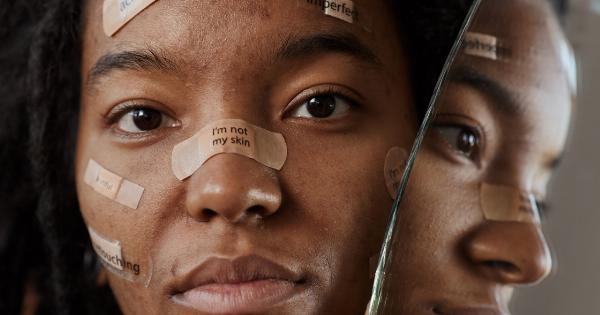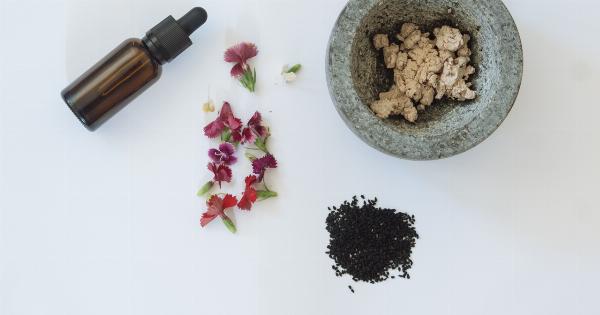Acne is a common skin condition that affects millions of people worldwide. Even though it is commonly associated with adolescence, acne can occur at any age.
The causes of acne are varied and complex, which has led to the emergence of many myths surrounding the condition. In this article, we will explore some of the most common myths surrounding acne and debunk them once and for all.
Myth #1: Acne is caused by poor hygiene
Contrary to popular belief, acne is not caused by poor hygiene. While keeping your face clean is important, excessive washing can actually do more harm than good.
Over-washing can strip your skin of its natural oils, causing it to produce even more oil to compensate. This can lead to clogged pores and more acne. Additionally, acne is caused by a combination of factors, including genetics, hormones, and bacteria. Therefore, even if you have impeccable hygiene, you may still experience acne.
Myth #2: Eating greasy or oily foods causes acne
The foods we eat do not directly cause acne. However, studies have shown that there may be a link between a diet high in dairy and high glycemic index foods (such as white bread and sugary snacks) and acne.
The exact mechanisms behind this link are not fully understood, but it is believed that these foods can increase inflammation in the body, which can trigger acne. That being said, there is no need to completely eliminate these foods from your diet. Moderation is key.
Myth #3: Acne is a result of poor lifestyle choices
While certain lifestyle choices can contribute to acne, they are not the sole cause. Stress, lack of sleep, and smoking can all exacerbate acne, but they are not the root cause.
Genetics and hormones play a much larger role in the development of acne than lifestyle choices. So, while it is important to take care of your body and engage in healthy habits, these alone will not eliminate acne.
Myth #4: Sun exposure can cure acne
Sun exposure may temporarily improve acne by drying out the skin, reducing inflammation, and improving the appearance of acne scars. However, these effects are short-lived, and prolonged sun exposure can actually worsen acne.
Sun exposure can cause the skin to produce more oil, which can lead to clogged pores and more acne. Additionally, UV radiation can cause skin damage and increase the risk of skin cancer. Therefore, it is important to use sunscreen and limit sun exposure to protect your skin.
Myth #5: Tanning can make acne scars disappear
Tanning may temporarily darken acne scars and make them less visible. However, this is not a permanent solution. In fact, tanning can actually make acne scars worse in the long run.
Tanning causes skin damage and can lead to premature aging, uneven skin tone, and an increased risk of skin cancer. If you want to reduce the appearance of acne scars, there are many other effective treatments available, such as chemical peels, microdermabrasion, and laser therapy.
Myth #6: Only teenagers get acne
Acne is often associated with adolescence, but it can occur at any age. In fact, many people continue to experience acne well into their 30s, 40s, and beyond. Adult acne is more common in women than men, and it is often linked to hormonal changes.
Menopause, pregnancy, and the use of certain medications (such as birth control pills) can all contribute to the development of acne in adults.
Myth #7: Popping pimples is a good way to get rid of them
Popping pimples may seem like a quick and easy way to get rid of them, but it can actually make acne worse. When you pop a pimple, you are pushing bacteria deeper into the skin, which can cause more inflammation and make the acne last longer.
Additionally, popping pimples can lead to scarring, which can be difficult to treat. If you have acne, it is best to leave it alone and let it heal on its own. If you are concerned about the appearance of your acne, talk to a dermatologist about effective treatment options.
Myth #8: Acne is contagious
Acne is not contagious. It is caused by a combination of factors, including genetics, hormones, and bacteria. Therefore, you cannot “catch” acne from someone else.
However, it is possible to spread bacteria from one area of your skin to another by touching your face or picking at your acne with dirty hands. To prevent the spread of bacteria, it is important to wash your hands regularly and avoid touching your face as much as possible.
Myth #9: All acne treatments work the same way
There are many different treatments available for acne, and not all of them work the same way. Some treatments, such as benzoyl peroxide and salicylic acid, work by killing bacteria and reducing inflammation.
Other treatments, such as retinoids, work by unclogging pores and promoting skin cell turnover. Still, other treatments, such as oral antibiotics and hormonal therapies, work by targeting the underlying causes of acne.
The best acne treatment for you will depend on the type and severity of your acne, as well as your skin type and other individual factors.
Myth #10: Once you have acne, you are stuck with it for life
Acne can be a frustrating and sometimes stubborn condition, but it is not necessarily a lifelong sentence. With the right treatment and lifestyle modifications, most people can successfully manage their acne and prevent future outbreaks.
It may take some trial and error to find the best treatment for you, but with patience and persistence, clear skin is achievable.





























